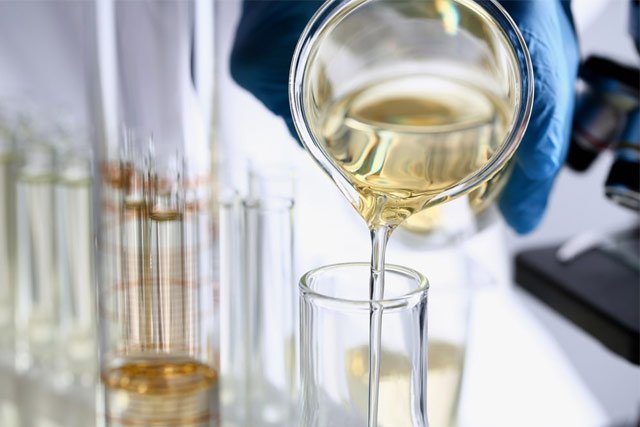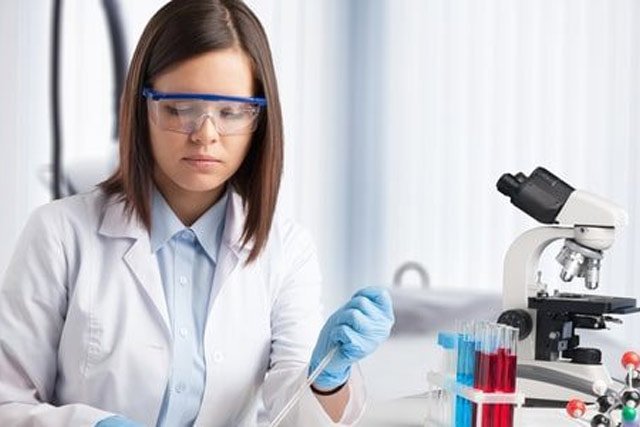Today’s current advancements in technology have resulted in synthetic urine mimicking real urine properties and characteristics to a greater and greater extent. However, is this enough to fool drug screening laboratories into mistaking it for the real deal? Can labs tell the difference between real and synthetic urine? Keep reading to discover the truth.
Synthetic urine is artificially created urine from water, urea, creatine, and other chemicals that are contained in real urine. It is specially formulated to resemble urine and can be used as a substitute. This substitute is commonly used by those who partake in recreational drugs to pass a urinalysis drug test.
If you want to know whether this product has been praised by many as a good investment or not? Get ready to dig up the truth and science behind using synthetic urine in a drug test.
Will Labs Recognize Synthetic Urine?

Several labs used synthetic urine for quality control preparations in the 80s and into the late 90s. Moreover, in today’s modern society, several companies are selling synthetic urine to pass a standard urine drug test. Depending on the type and brand of synthetic urine you’re using, and a lab may be unable to recognize the difference between synthetic and authentic urine.
This is because many companies recognize the changing industry specifications and regulations and change with them. Brands like Quick Fix are continually updating their synthetic urine kits to match the froth, color, pH, chemicals, and taste of actual urine. Today’s synthetic urine kits even come with heating pads to heat the artificial urine to a body temperature that resembles real urine.
Even if some synthetic urine kits do not pass physical observation, studies have shown that synthetic urine can still give a drug immunoassay and specimen validity testing (SVT) as authentic urine.
If labs are not thorough and only use an adulteration test strip, they can not detect any synthetic urine traces. This is because the chemicals in synthetic urine are carefully handpicked. They do not trigger any alarms for adulterants, also known as substances that interfere with urine test results. One example of impurity is PCC, which can inhibit readings for cocaine. Labs need to use on-site synthetic urine tests such as Synthetic UrineCheckTM to catch synthetic urine.
Not all labs will use on-site synthetic urine tests to save time and money, which can work to your advantage.
What do Labs Test For?
For urinalysis, labs test for many things to verify if the piss is real and if there are any illicit drugs in the urine.
Here is a list of what labs test for:
- pH balance: The pH of urine must be in the range of 4.5 to 8.0. Otherwise, it could mean you have a health condition, such as kidney stones affecting your urine pH. If you do not report any health conditions, the facilitator will immediately be suspicious when your urine pH tests for an abnormal situation. This could result in an in-depth investigation of synthetic urine failing your drug test.
- Specific gravity: Urine gravity levels need to fall between 0.1002 and 0.1003 for a normal healthy human being. Labs use specific gravity to determine urine dilution levels when it is over-diluted due to excessive water intake to lower drug metabolite concentration and pass a drug test.
- Creatinine levels: These must range from 601mg to 2936mg. If you’re using the wrong synthetic urine kit, the ratio of chemicals is probably messed up, and your creatinine levels will not show up in this range, inciting a red flag.
- Temperature: Urine needs to have a temperature range between 94℉ and 100℉. Urine not falling within this range is a dead giveaway: synthetic, powdered, or another individual’s urine.
- Froth: Real human urine does not have a lot of froth. When urine is shaken, there should not be much frothing because this indicates the addition of adulterants, such as detergents, which interfere with test results. A poorly formulated synthetic urine kit can contain adulterants.
- Urea: Drug labs check for urea, which should ideally be in the range of 12 to 20 grams.
- Drugs: The entire point of a urine drug test is to screen for drugs and their metabolites. Most urine labs run a standard 10-Panel test to look for substances like cocaine, cannabis, and barbiturates.
Consequences of Getting Caught Using Synthetic Urine

Using synthetic urine is not illegal under federal law. However, at least 18 states have banned synthetic urine because of its potential to cheat drug tests. Excuses that drug companies have tried to tout, such as the fake urine being used as a gag gift or for potentially deviant activities, have not been considered. As a result, synthetic urine has been outlawed in many states.
If you are caught with synthetic urine, you could be committing two felonies—one of trying to cheat a drug test and possessing illegal substances.
Cheating a drug test is the more severe of the two. You can get fined anywhere from $1000 – $6,000 or face a jail term of up to three years. Using fake urine has less of a consequence of being fined $1,000 or going for up to six months behind bars in individual states.
Is Powdered Urine Less Likely to be Detected?
If the powdered urine that you’re using is just synthetic but in a powder form, you face the same likelihood of being caught and punished for your usage. However, if you refer to natural urine being intensely dehydrated and converted into a powder form, that is entirely legal. As powdered urine is a relatively new development, most states have yet to cotton on to the fact that it can be used to cheat.
Powdered urine is harder to detect than synthetic urine since it is real urine without added artificial ingredients or detectable materials.
You can obtain powdered urine online or from a trusted vendor like Test Clear. Dehydrate a sample of urine from a drug-free friend or family member using a food-dehydrating machine. Conceal the urine vial and use a heating pad to pass an unsupervised drug test.
During a supervised drug test, a facilitator closely monitors you to prevent any misconduct during urination, making it impossible to attempt cheating methods. Unless you get lucky, taking drugs will result in a failed drug test in this situation.
Should I Use Synthetic Urine?

The odds favor passing a urinalysis with synthetic urine, but it depends on the lab’s testing practices. If many people use synthetic urine in an area, labs may use extensive screening and proper equipment to detect it.
Before choosing synthetic urine, research the statistics of your hometown online. If labs in your area are testing for synthetic urine, consider using a detox kit instead.
Labs won’t screen out dehydrated urine since it is normal. You can look for reliable powdered urine vendors online or make it yourself using a willing donor’s urine.




